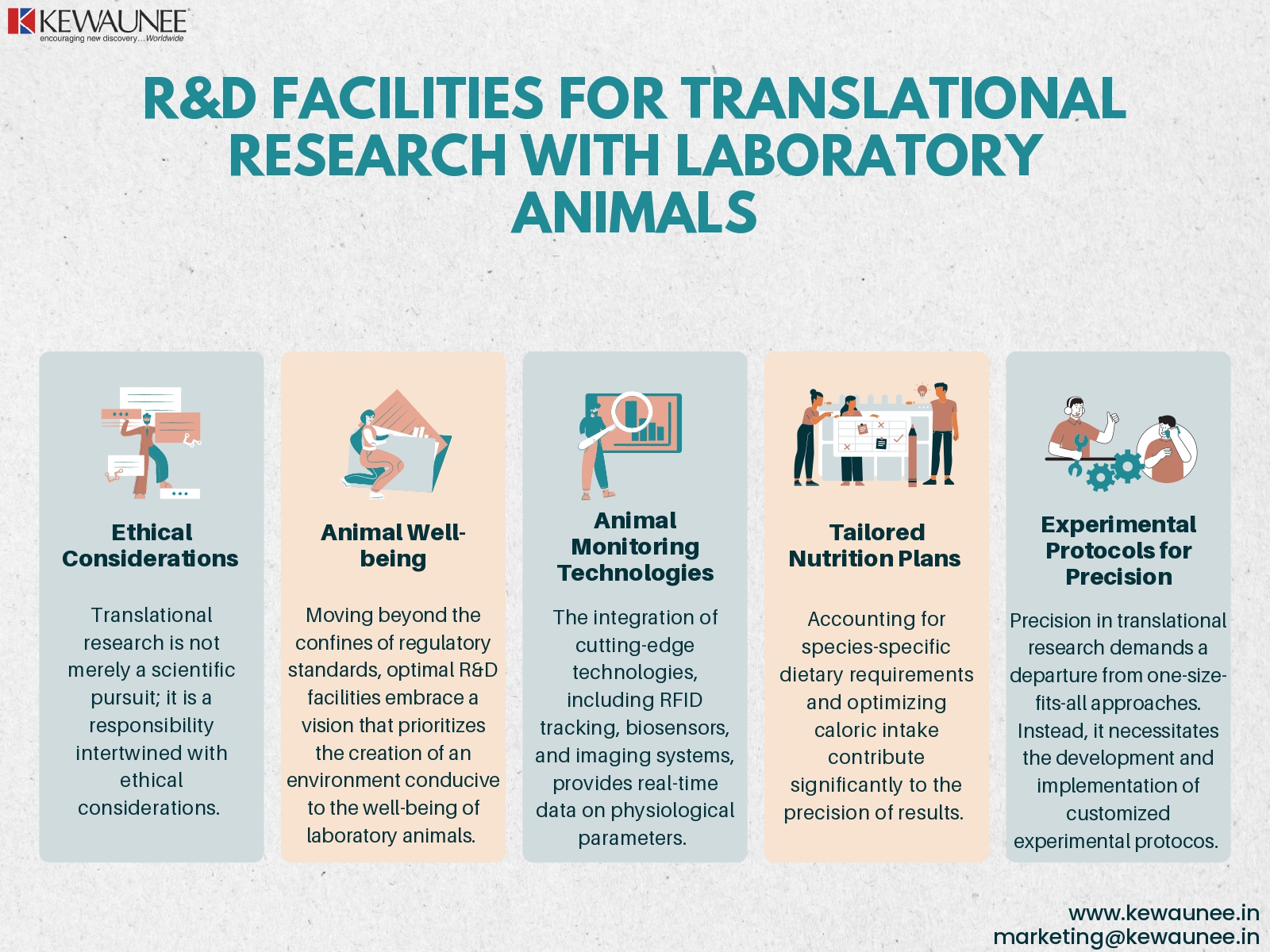Optimizing R&D Facilities for Translational Research with Laboratory Animals
Translational research, acting as the vital conduit between laboratory discoveries and practical clinical applications, stands as the cornerstone of progress within R&D facilities that utilize laboratory animals.
Achieving precision in these settings demands a holistic and nuanced approach. Beyond technological advancements, it necessitates a careful consideration of ethical principles, innovative facility design, and the integration of cutting-edge monitoring technologies.
In this comprehensive exploration, we delve into the multifaceted elements that contribute to the precision in practice when optimizing R&D facilities for translational research with laboratory animals.
1. Ethical Considerations in Translational Research
Translational research is not merely a scientific pursuit; it is a responsibility intertwined with ethical considerations. Researchers engaged in this field must navigate a delicate balance, upholding the Three Rs (Replacement, Reduction, Refinement) principles.
By prioritizing humane practices and ensuring the welfare of laboratory animals, a solid ethical foundation is established, enhancing the credibility and integrity of translational research endeavors.
2. Advanced Facility Design for Animal Well-being
Moving beyond the confines of regulatory standards, optimal R&D facilities embrace a vision that prioritizes the creation of an environment conducive to the well-being of laboratory animals. Advanced facility design encompasses spatial considerations, enrichment strategies, and sophisticated ventilation systems.
This comprehensive approach seeks to enhance the physical and psychological comfort of laboratory animals, fostering an atmosphere that is not only conducive to research but also aligns with principles of high-precision translational studies.
3. Cutting-Edge Animal Monitoring Technologies
Technological strides have revolutionized the landscape of monitoring laboratory animals during translational research. The integration of cutting-edge technologies, including RFID tracking, biosensors, and imaging systems, provides real-time data on physiological parameters.
This not only amplifies the accuracy of research outcomes but also ensures proactive health monitoring throughout the experimental process. By aligning with the principles of precision, researchers can attain a more comprehensive understanding of the implications of their work.
4. Tailored Nutrition Plans for Experimental Success
Nutrition emerges as a linchpin for the reproducibility and reliability of translational research outcomes. The significance of customized nutrition plans cannot be overstated. Accounting for species-specific dietary requirements and optimizing caloric intake contribute significantly to the precision of results.
A meticulous focus on nutrition not only enhances the validity of experimental outcomes but also plays a pivotal role in supporting the overall health and longevity of laboratory animals.
5. Customized Experimental Protocols for Precision
Precision in translational research demands a departure from one-size-fits-all approaches. Instead, it necessitates the development and implementation of customized experimental protocols.
This involves meticulous planning, accounting for species-specific requirements, dosage administration methods, and data collection techniques. Tailored experimental protocols not only ensure controlled variables and reproducible results but also elevate the precision of translational research, establishing a foundation for robust scientific findings.
Summary
Precision in R&D facilities for translational research with laboratory animals is a nuanced pursuit that requires a holistic and multidimensional approach. Ethical considerations, advanced facility design, cutting-edge monitoring technologies, tailored nutrition plans, and customized experimental protocols collectively contribute to precision in practice.
The integration of these elements not only raises the standards of translational research but also ensures the well-being of laboratory animals. This commitment to precision not only advances scientific understanding but also establishes a foundation for responsible and impactful translational research, propelling innovation, and progress within the scientific community.
Comments are closed.











